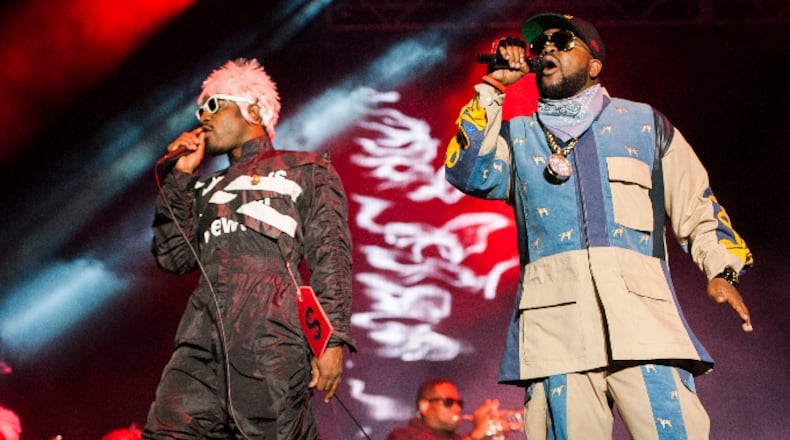A new course at the Georgia Institute of Technology is taking hip-hop and trap music beyond the labs.
Joycelyn Wilson, assistant professor at Georgia Tech and the mastermind behind the new class, always wanted to study how hip-hop could be used as a learning tool in the classroom.
» Savannah’s Armstrong State University is offering a class on OutKast and it sounds awesome
And she’s been in this game for a while, the Atlanta native told The Atlanta Journal-Constitution. Her interests in the intersection of hip-hop and learning began in a high school math class where she used rap music to teach algebra.
The new course, Engaging the Lyrics of Outkast and Trap Music to Explore Politics of Social Justice, gets students talking about the influence of southern hip-hop on issues of race and gender particular to Atlanta.
Wilson, who studied mathematics at University of Georgia, said she wanted the course to inspire and create STEM leaders—those studying science, technology, engineering or mathematics—with a social justice capacity.
“When you’re an engineering or public policy student, you’re sitting at a table of decisions that can influence the community,” Wilson said.
And this music, she said, can allow people to get to the heart of the issues in a community.
Wilson’s Georgia Tech class is heavily discussion-based, but students also write weekly reflections, curate playlists and compile a final paper on the ideology of trap music.
An additional group project divides the class of 24 students into four, each group appropriately named after hip-hop music or artists, including Good Kid Mad School and A Tribe Called Text. The former is a play on Kendrick Lamar’s Grammy award-winning album “Good Kid, M.A.A.D City” and the latter on popular hip-hop group A Tribe Called Quest.
As part of the group assignment, students are assigned an Outkast album to further research and are then expected to write case studies around trap music extending beyond the hip-hop duo.
“Students see this course as an opportunity to have conversations they can’t have in other classes,” Wilson said. “When they come here, they’re able to marry what they learn in STEM with the humanities.”
Wilson also aims to take what students create in the classroom and feature their work on virtualfourfour.org, a digital archive for subscribers to virtually enjoy 10,000-plus hip-hop inspired cultural artifacts and part of Wilson's educational and hip-hop intersectional resource, Four Four Beat Project.
Unfortunately, the class is completely full for now, but Wilson said she’s hopeful that she’ll be able to teach it again another semester.
To learn more about the intersection of hip-hop and education, watch Wilson's popular TEDx talk at Virginia Tech in which she shares how hip-hop influenced her life and the unique benefits it can bring to education.
Migos: 5 things to know about Atlanta rap group
About the Author
Keep Reading
The Latest
Featured


